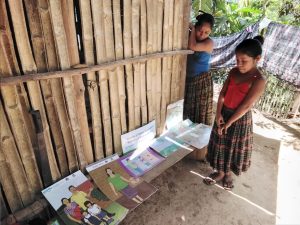The Guatemalan Sugar Industry promotes sports and a healthy lifestyle and this Tuesday proudly announced that now sponsors the FC Santa Lucia Cotzumalguapa team of the National Soccer League.
“The Guatemalan Sugar Industry is very committed to issues of health, education, community development, and today we are getting involved in another important activity such as sport,” said Alvaro Ruiz, vice president of the Guatemalan Sugar Producers Association -Asazgua-.
Also, Rodolfo Puertas, president of FC Santa Lucia Cotzumalguapa, current champion of the National League, said “for us it is a privilege to have this association (as a sponsor) and to be able to count on the support of the sugar sector.”
The Guatemalan Sugar Industry considers physical activity as a fundamental element for a healthy lifestyle, and supports events such as the Sugar Race, a 10.5 kilometers route that marks the beginning of the Zafra and has been carried out every year since 1987.
Another important component for a healthy life is food security, the Sugar Industry through the Sugar Foundation -Fundazucar- has implemented the Better Families program that promotes food and nutritional security, as well as the empowerment of women as agents of change and catalyst for development.
The program has been so successful that four municipalities of the South of the country signed a cooperation agreement with Fundazucar for the transfer of the methodology that allows educating mothers in preventive health with sustainable actions to improve the conditions of their children, family and community.








 Sinces 2015 the Sugar Industry in conjunction with the ICC have released around 160,000 fingerlings and 18,000 freshwater snail into three rivers of the South of Guatemala. The ICC conducts studies to analyze the fish population in various rivers of the South of Guatemala, with the aim of determining how the aquatic fauna is doing and prioritizing fish releases where necessary, always using native species.
Sinces 2015 the Sugar Industry in conjunction with the ICC have released around 160,000 fingerlings and 18,000 freshwater snail into three rivers of the South of Guatemala. The ICC conducts studies to analyze the fish population in various rivers of the South of Guatemala, with the aim of determining how the aquatic fauna is doing and prioritizing fish releases where necessary, always using native species.
 The Guatemalan Sugar Industry actively participates, both in Camagro and in the Business Network. Since 1999 has permanently contributed to the prevention and eradication of child labor, through a union policy that establishes the working conditions to generate decent employment and the No child labor in the activities of the sugar sector.
The Guatemalan Sugar Industry actively participates, both in Camagro and in the Business Network. Since 1999 has permanently contributed to the prevention and eradication of child labor, through a union policy that establishes the working conditions to generate decent employment and the No child labor in the activities of the sugar sector. “The Guatemalan Sugar Industry reiterates its commitment to the generation of formal, dignified and decent employment, and the No child labor,” said Alfredo Vila, President of the Guatemalan Sugar Producers Association -Asazgua-.
“The Guatemalan Sugar Industry reiterates its commitment to the generation of formal, dignified and decent employment, and the No child labor,” said Alfredo Vila, President of the Guatemalan Sugar Producers Association -Asazgua-.



